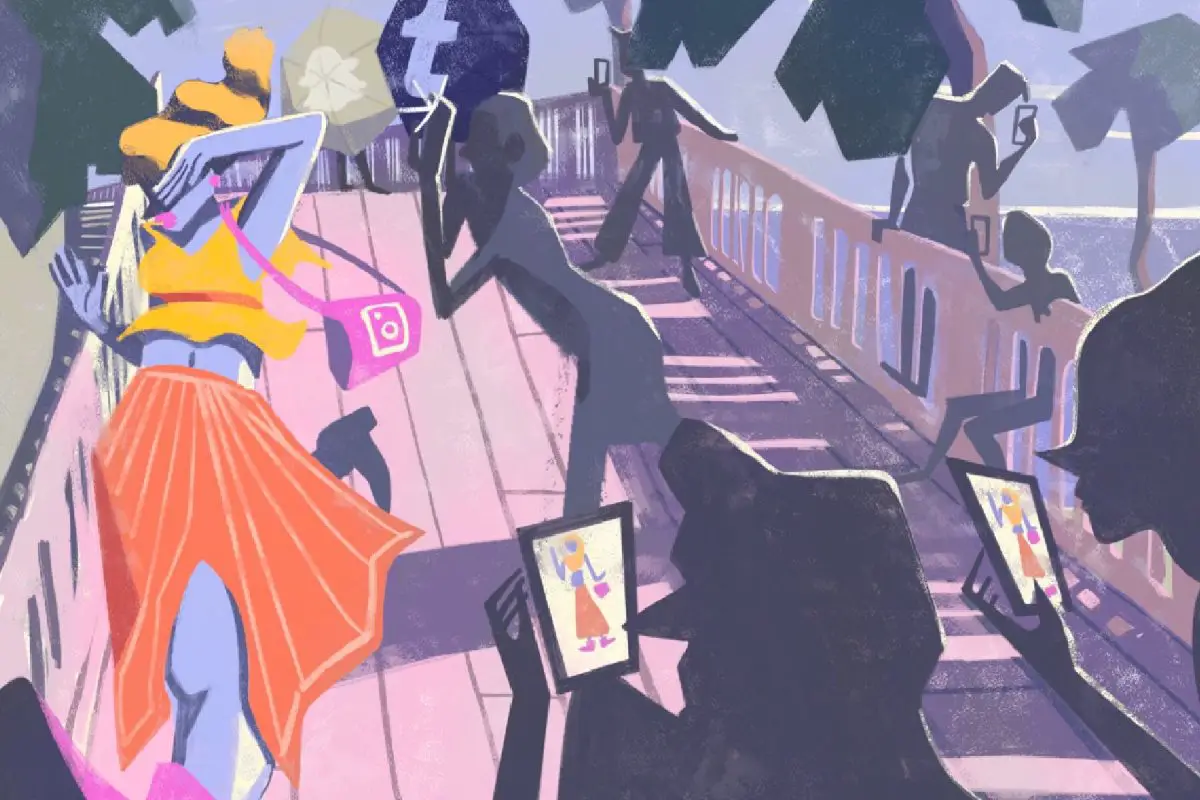What was great about social media in the beginning was that it felt like an entirely separate world from one’s day-to-day life. You would log onto the website of your choice, exist anonymously and maybe observe the drama of some strangers that lived thousands of miles away. It was hardly ever brought into real life conversations, as if it was a little secret you shared with a select group of people. Today, the line between social media and the real world is blurred. Whatever questionable thing your favorite celebrity posted today has become a dinnertime topic. People base their self-esteem off of how liked they are online. It even feels like one big resume, with every social space dangling the opportunity for a job or partnership in front of your face. Places like Instagram — sites that are becoming more and more interconnected with people’s real lives — are skyrocketing to popularity. This brands ghost towns like Snapchat and Tumblr as dying social media platforms, except, they’re not actually dying.
A few years ago, making a case for dying social media platforms — or even suggesting that they’re not actually that dead — would’ve been scoffed at, considering the harsh tumble they took. When Snapchat first appeared, it took the world by storm. It was a fresh take on social media, where you could interact with friends and post pictures — except they would disappear after 24 hours and your caption could only be as long as one line of text. When Instagram implemented a Snapchat story-like feature in 2016, and then Facebook in 2017, the app had lost what made it so special in the first place. People no longer thought pictures disappearing after a day was cool. Pepper in the fact that the app went through a not-so-great redesign in 2018, you could see that the user base was beginning to drop dramatically.
Tumblr had somewhat of a similar story. In December 2018, the site decided to ban all adult content. A month later, its traffic dropped by almost 100 million views. Although adult creators made up a small portion of the user base, and Tumblr includes many types of blogging (such as personal blogging and foodie blogging), it’s what it was known for. Tumblr was one of the only places that freely allowed NSFW content.
The adult content ban was the equivalent of Burger King suddenly announcing they won’t serve burgers anymore. With many other dying social media platforms, and platforms that have already been put to rest, you can see an identical chain of events: the site enjoyed a period of extreme success, suddenly had a rule change or was overtaken by an up-and-coming social giant, and was thrown into obscurity. One could call it the social media circle of life.
These days, though, there’s a select few who have decided to quietly reoccupy and make themselves at home in shunned websites. While everyone else is concerned with having an aesthetically pleasing Instagram, or trying to make a viral tweet, they’re screaming into the internet void about their problems. They’re spilling their secrets and then disappearing.
The idea of being online and being ignored is typically not ideal, but social media can feel suffocating. On the surface, it seems entertaining, liberating and just plain fun, but log on for more than five minutes, and you can start to feel the pressure it brings. There’s this constant feeling of needing to do better online. You can get more followers; you can post more attractive selfies; you can become internet famous. It’s gotten to the point where many people are stuck in this limbo. They want to escape the pressures of the digital world, but don’t want to throw away their internet access in its entirety. This is when those dying social media platforms come in handy.
These places fading back into existence, such as Snapchat and Tumblr, have less and less to do with people’s real lives — the ones they have to be accountable for and acutely aware of what’s happening at all times. Because these digital ghost towns no longer seem to be under the general public’s watchful, judgmental eyes, it’s as if all rules are thrown out the window. These places can feel like a party where you’re able to be yourself and only a few others are invited.
There’s something exciting and oddly freeing about being online and posting an ugly selfie, or something you wouldn’t even tell your closest friend, to a handful of people who live thousands of miles away. It’s like going to a group therapy session where it’s a different group of strangers each time you show up. You have no connection to these people, so why not spill it all? What do you have to lose? They won’t judge you in the real world. The consequences you face in that online space won’t matter. It’s more exhilarating than walking barefoot across burning coals.
Vent and Peach, two platforms that never really had their moment to shine like some other sites, have forever existed on the brink of death. Because of this, they function like some exclusive, private organization. It’s like a mini get together where hardly anyone is paying attention. There’s no wariness or need to wear a mask.
Dying social media platforms aren’t as obscure as one would typically believe them to be. Like zombies, they’ve risen from the grave, and are slowly making their way back into the lives of some users. Spaces to rant where the biggest concern isn’t how many people are liking and complimenting your post is something many crave now more than ever. In this digital age, where everyone’s whole lives are online and they have to project perfection, all some people want is to be unseen. When websites become irrelevant, they give their users more than they ever could have when they were at the peak of their popularity: freedom.

















